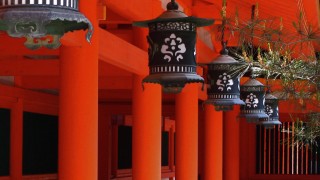"Little did I know, my upcoming semester in Japan would help uncover new interests and crystalize my future research goals."
Although it may seem like a cliche, going on exchange was an almost transformative experience for me. The semester before going to Japan I had decided that I really wanted to be an academic, but like most undergrads, I wasn’t really sure what my area of research would be. I started talking with professors at Columbia about academia and possible research projects. There were a ton of options available at Columbia, but none of them really clicked with me. Little did I know, my upcoming semester in Japan would help uncover new interests and crystalize my future research goals. In Japan I took a course on local climate change and ecological conservation, the course stressed personal interviews and field work as part of its methodology.
One of the first assignments was to interview our host families or a Japanese friend about their views on nature. While interviewing my host father, I found out that he was part of the local conservation society and his son was a professor of environmental sciences at Kyoto University. Through my host father and his son I was slowly introduced to farmers, conservationists, hunters, and scientists who lived in the Kansai region.
I spent my weekends visiting different villages to stay with the people I had met, learning their trade, helping with their work, and interviewing them and their friends about the local communities relationship with the land. Ultimately I spent a week living and working on a farm in an isolated mountain village called Kamiseya. It was here that one day, while looking over some photos and my interview notes, I realized this was exactly what I wanted to research. The relationship between local communities and nature, how the philosophies and practices many of these villages lived by were developed, and the way in which climate change was threatening or changing their way of life. If I hadn’t gone on exchange I would have never had these first hand experiences and might not have discovered this fascinating line of research which has determined my academic future.
